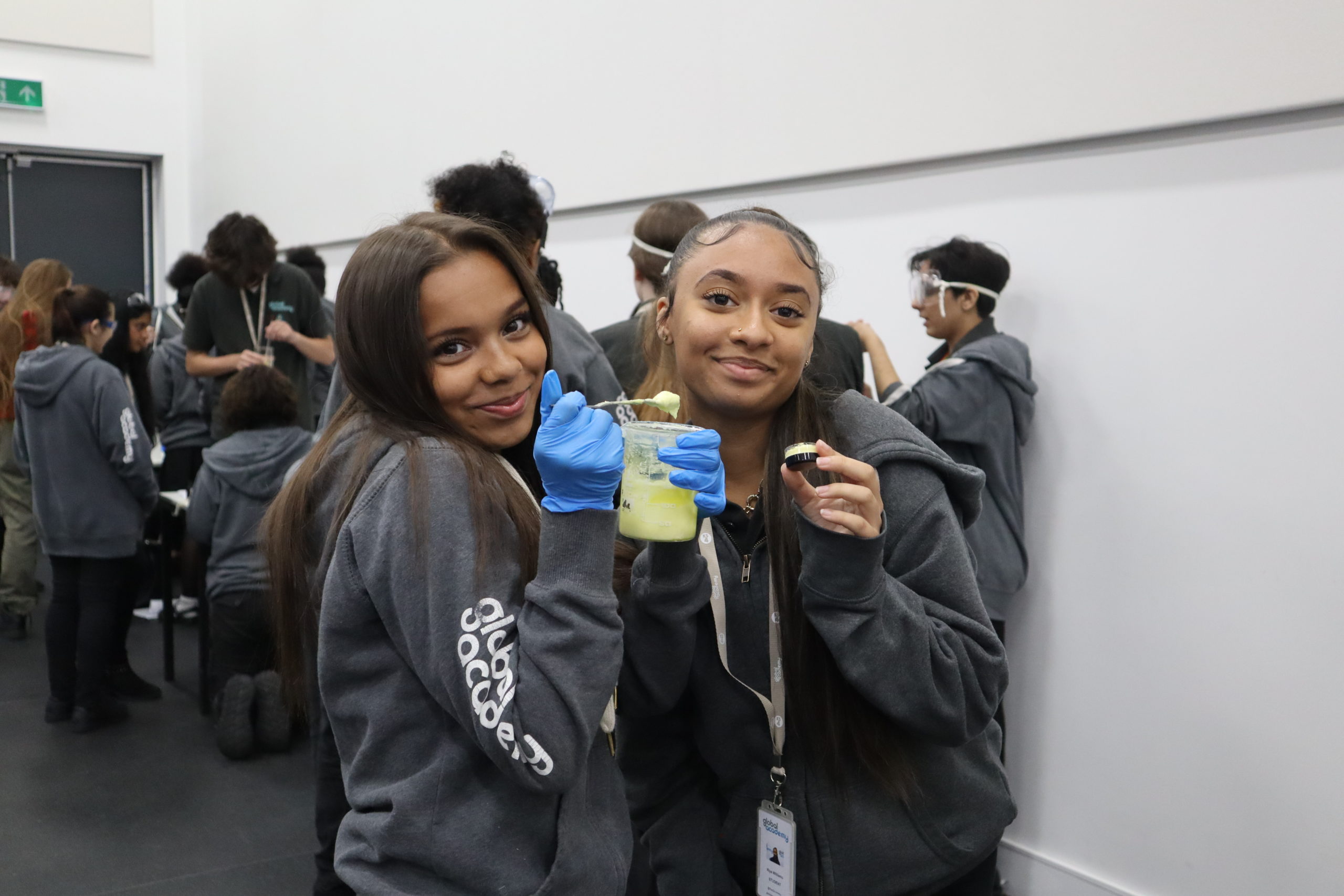About the Course
There is Science behind everything, and our comprehensive curriculum is full of intrigue and wonderment.
We want our students to engage with the concepts that govern the world, ask inquisitive questions and provide knowledgeable answers. The skills learnt through the curriculum not only equip our students to be successful in A-level Science qualifications but can also be applied within their Media qualification.
Within the curriculum, students work scientifically to investigate substantive knowledge. Students do this by learning to observe, problem solve, investigate hypotheses, develop methodologies, undertake practical applications, work in teams, work independently, present their ideas, critically analyze claims, draw conclusions, and evaluate their and others work. All skills that are valuable and applicable in the Media industry. We ask our students to apply their understanding of science to the wider world.
We engage our learners in the learning of science and what it means to them. We link the learning to their lives and other subjects such as Math (key transferrable skills), English (core vocabulary and application), and Media (engaging and presenting) so that learning is multifaceted, and students can make links between all the disciplines both within science and as a wider curriculum.
Key intent areas to focus on 2023-2024 based on examination analysis:
- Graphing and mathematical skills in science
- Appropriate use of key terminology
- Clarifying misconceptions
- Recalling practical methodologies and skills.
- Applying knowledge to unfamiliar contexts
What I will study / do during the course?
All assessments are written examinations that include multiple choice, structured, closed short answer, and open response.
EXAMS will be based on TIER OF ENTRY (HIGHER OR FOUNDATION)
Biology
Cell biology
Organisation
Infection and response
Bioenergetics
Homeostasis and response
Inheritance, variation and evolution
Ecology
Chemistry
Atomic structure and the periodic table
Bonding, structure, and the properties of matter
Quantitative chemistry
Chemical changes
Energy changes
The rate and extent of chemical change
Organic chemistry
Chemical analysis
Chemistry of the atmosphere
Using resources
Physics
Energy
Electricity
Particle model of matter
Atomic structure
Forces
Waves
Magnetism and electromagnetism
Assessment
- Biology Paper 1
- Topics: 1-4
- Duration: 1 hour and 15 minutes
- Marks: 70
- Percentage of GCSE: 16.7%
- Biology Paper 2
- Topics: 5-7
- Duration: 1 hour and 15 minutes
- Marks: 70
- Percentage of GCSE: 16.7%
- Chemistry Paper 1
- Topics: 8-12
- Duration: 1 hour and 15 minutes
- Marks: 70
- Percentage of GCSE: 16.7%
- Chemistry Paper 2
- Topics: 13-17
- Duration: 1 hour and 15 minutes
- Marks: 70
- Percentage of GCSE: 16.7%
- Physics Paper 1
- Topics: 18-21
- Duration: 1 hour and 15 minutes
- Marks: 70
- Percentage of GCSE: 16.7%
- Physics Paper 2
- Topics: 22-24
- Duration: 1 hour and 15 minutes
- Marks: 70
- Percentage of GCSE: 16.7%
What qualification will I get?
Combined Science Trilogy is worth 2 GCSEs. The grade is an average of the 6 papers that students will sit at the end of the two-year qualification.
What partners are involved in the course?
We work with different departments to form cross curricular briefs alongside external companies such as ‘Uncommon collective’. This provides our students with the opportunity to apply practical knowledge and skills to when they are expected to pitch a brief for a company’s marketing and advertisement.
Where could this course take me?
Pre-requisite for A-Level Sciences (Biology, Physics, Chemistry) – If the student takes the higher tier paper and achieves a combined grade greater than 6.
Grade 5 or above is the minimum requirement for entry within most sixth-from colleges for other courses.
Scheme of Work
Read our Scheme of Work and Department Booklet HERE.
Course Resources and Downloads
Our learning platform app: https://www.tassomai.com/
Revision material: https://senecalearning.com/en-GB/
Recommended revision guide: https://collins.co.uk/products/9780008160791
Biology textbook: https://global.oup.com/education/product/9780198359371/?region=uk
Chemistry textbook: https://global.oup.com/education/product/9780198359388/?region=uk
Physics textbook: https://global.oup.com/education/product/9780198359395/?region=uk


